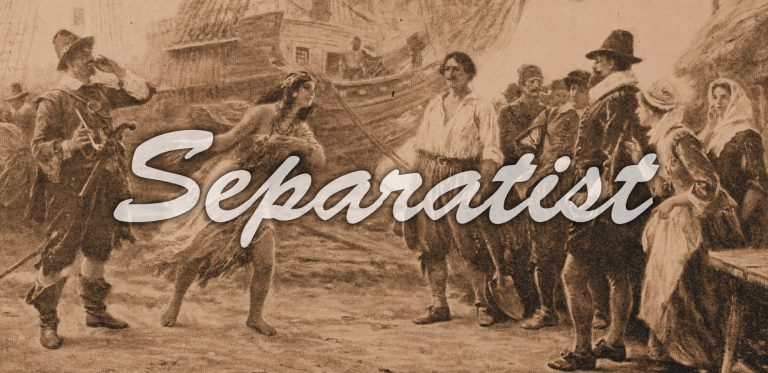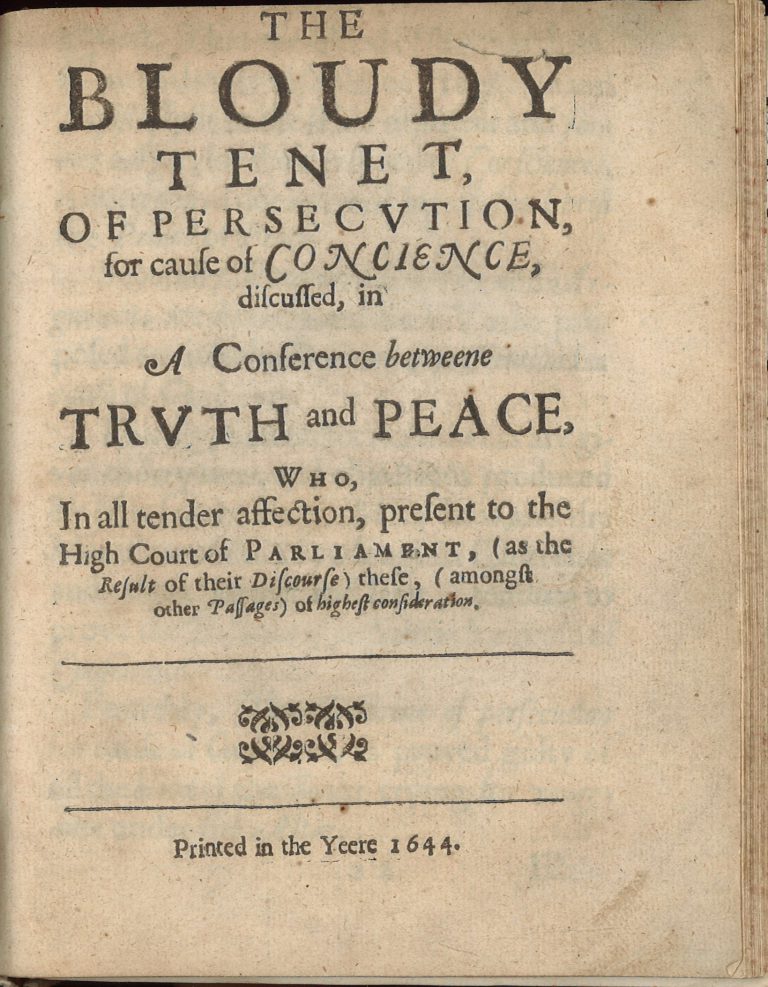Roger Williams’ 1655 Parable of the Ship is used as an illustration of separation of church and state, liberty, and the common good.
In this article, we delve into Roger Williams’ 1655 Parable of the Ship, a powerful illustration of the principles of religious freedom and the separation of church and state. As the founder of Rhode Island, Williams was a trailblazer in advocating for religious liberty and the common good in a society characterized by religious intolerance. By exploring the historical context of 17th-century America and the plight of religious minorities, we gain a deeper understanding of Williams’ revolutionary ideas and the lasting impact of his vision on American democracy and religious freedom worldwide.
Parable of the Ship: The Garden of Religious Liberty
To set the stage, let’s start in 1655 when the Providence colony surprised other colonies by welcoming Jewish settlers. Most people know that the Puritans fled England for religious freedom. What most don’t know is that they sought the freedom to practice their version of religion in their own way. They persecuted anyone who refused to conform to their practices. In the New World, Puritans punished citizens for actions such as refusing to take an oath, not attending church, or neglecting to pray with their families. For women, the situation was even worse. Husbands essentially owned their wives and could beat them, and women were not allowed to speak in church, among other restrictions. Many faced penalties such as jail, banishment into the wild, flagellation, having ears cut off, tongues bored, and even death. Given this context, it’s no surprise that the colonies took great offense when Roger Williams welcomed Jewish settlers into his neighboring Providence colony.
Roger Williams founded Rhode Island in 1636. Later, in 1655 he visited the new Jewish settlers in Newport. The response from the other colonies was the charge that he advocated infinite liberty of conscience, which he did. Roger Williams’ response is legendary. He wrote a famous letter which contained a parable that has stood the test of time. His famous parable is a short story in which papists, protestants, Jews, and Turks all live and work together for the common good.
Here is the relevant passage–edited for clarity:
“…There goes many a ship to sea, with many hundred souls in one ship, …and is a true picture…[of a] society. …papists and protestants, Jews and Turks, may be embarked in one ship; …All …I pleaded for… [were these] two hinges –
[FIRST] that none of the papists, protestants, Jews, or Turks, be forced to come to the ship’s prayers or worship, nor compelled from their own particular prayers or worship, if they practice any.
[SECOND] …the commander of this ship ought to command the ship’s course, …and also command that justice, peace, sobriety, be kept and practiced, both among the seamen and all the passengers. If any of the seamen refuse to perform their services, or passengers to pay their freight; if any refuse to help…towards the common …defense; if any refuse to obey the common laws …if any shall mutiny …if any should preach…that there ought to be no commanders or officers…the commander …may judge…and punish such transgressors…” –Roger Williams, 1655.
This parable has become known as “The Garden of Religious Liberty,” and it is a powerful illustration of Williams’ vision of a society in which people of all faiths can coexist peacefully and respect each other’s beliefs. Williams argued that religious liberty was not just a matter of individual rights, but also a crucial component of a stable society. He believed that the state had no right to dictate religious beliefs nor practices, and that individuals should be free to follow their conscience and worship as they saw fit, or not at all. This was a radical idea at the time, but it has become a cornerstone of American democracy.
Williams’ vision of religious freedom was not just theoretical; he put it into practice in Rhode Island. The colony became a haven for religious dissenters of all kinds, including Quakers, Baptists, and Catholics. It was the first colony to guarantee freedom of conscience in its charter, and it became known as a place where people could practice their faith without fear of persecution. Williams’ legacy has been felt throughout American history, from the First Amendment to the Constitution to the Civil Rights movement of the 20th century. His vision of a society based on tolerance, respect, and freedom of conscience remains a powerful and inspiring ideal for people all over the world.

Weekly Wisdom Builder
Got 4 minutes a week?
A new 4-minute thought-provoking session lands here every Sunday at 3PM, emailed on Mondays, and shared throughout the week.
Exactly what the world needs RIGHT NOW!
Roger Williams’ Legacy and Modern Applications
In today’s diverse world, his Parable of the Ship continues to serve as an important reminder of the value of religious tolerance and the necessity of maintaining a separation between church and state. Many countries world-wide still need to learn this lesson. Repressive countries like Iran, Greece, and Poland still need to learn this lesson. Iran’s government is a full-on theocratic government where there is no separation between church and state. In Greece, the Greek Orthodox Church holds a privileged position in the country. Although Greece is a secular state, the Orthodox Church’s influence is evident in many aspects of public life, including education and family law. While Poland is a democratic country, the Roman Catholic Church plays a significant role in the nation’s politics and social life. The influence of the Church is apparent in the country’s conservative policies on issues such as abortion and LGBTQ+ rights. As societies grapple with the challenges of accommodating a wide range of religious beliefs and practices, Williams’ vision offers a blueprint for peaceful coexistence and the promotion of a common good that transcends individual differences.
Conclusion
The enduring relevance of Roger Williams’ 1655 Parable of the Ship highlights the significance of his ideas in the ongoing quest for religious freedom and social harmony. By creating a space for religious diversity in Rhode Island, Williams laid the groundwork for a more inclusive and tolerant society that has become a cornerstone of American democracy. As we continue to navigate the complexities of our diverse world, the wisdom and foresight of Roger Williams and his Parable of the Ship can serve as a guiding light, inspiring us to uphold the values of tolerance, respect, and freedom of conscience for all.
The story in the letter has become known as the Parable of the Ship and is used as an illustration of separation of church and state, liberty, and the common good.















